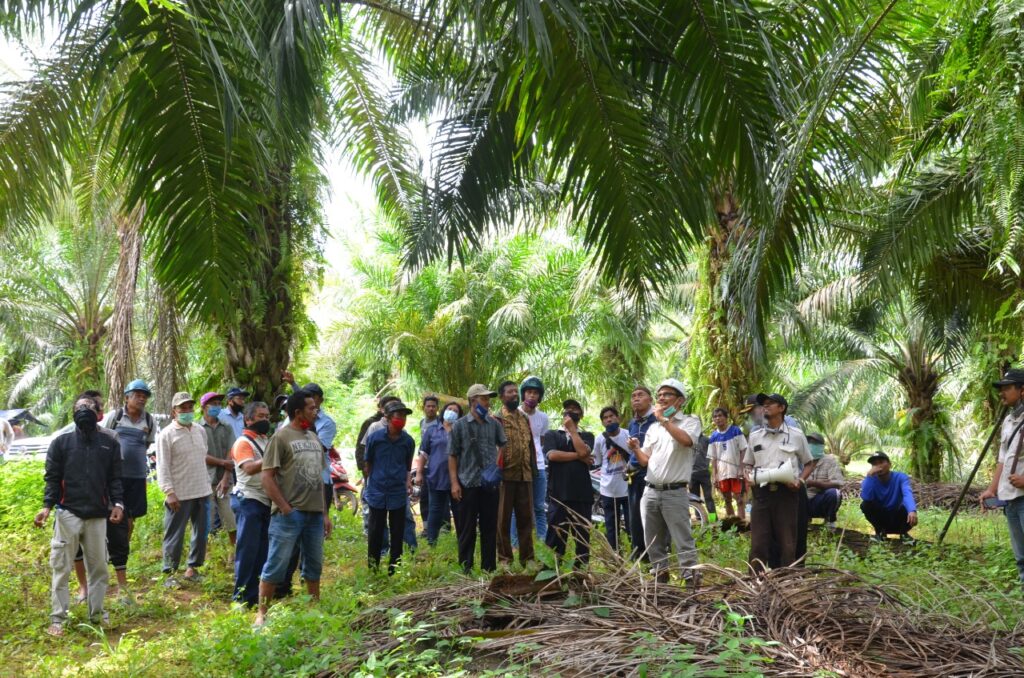Traceability

Traceability is an important first step for DSN Group in building relationships with third-party suppliers. Through engagement and efforts to earn their trust, we have been able to be on track in our supply chain transformation. Our efforts in this area are translated through “Engagement” programmes and strategies, among others through our engagement with suppliers to then share best practices and commitments.
DSN Group is building a traceable supply chain as a means of providing sustainable agribusiness solutions in the supply chain. To achieve this, we are working with our suppliers and buyers to build further understanding on sustainability including the “NDPE Policy”. This is also to help our suppliers to adopt better and sustainable practices in their own businesses.
Independent smallholder farms are the end of the supply chain, producing FFB as the main raw material for the palm oil industry. Independent smallholders sell their FFBs through cooperatives as members, or through a longer supply chain through agents. The Agent’s supply chain can have several channels, as illustrated in Figure 6. The length of the Agent’s supply chain causes difficulties in the data collection of the supplying smallholders’ farms.

Farmer traceability is fulfilled as per steps 2 and 4 of the NDPE program strategy for external suppliers. The mechanism is regulated through the Supplier Registration Procedure. The criteria for supplier traceability is when the registered smallholders’ area is equal to or exceeds the required farm area to produce FFB delivered to DSNG’s mills. The result of step 4 is the registered smallholders for each supplier, including the coordinates of the farm location and area, as shown in Figure 8.

By the end of 2023, DSNG’s overall FFB supply (from Nucleus, Plasma and External) that has been traceable is 91.8%.

For external suppliers, the traceability achievement for each DSNG external supplier landscape is between 42.5% – 77%. Total Traceability of external suppliers is 60.42%. Most of the suppliers that are not 100% traceable are Agent Suppliers. This is due to the complexity of the supply chain (as shown in Figure 6), which often leads to Agent managers not knowing who the supplying farmers are, as purchases are made indirectly.
In the wood products business unit, the Company has implemented a supply chain inventory and traceability system up to community agroforestry plantations using the e-RawMat application. The Company cooperates with sengon farmers and wood collector partners to fulfil the supply of sengon wood obtained from managed Community Forests. The sengon wood comes from traceable sources and complies with the Sustainability Legality Verification System (SVLK) as raw material for the Company’s wood products.
Full details can be found in our 2023 NDPE report.